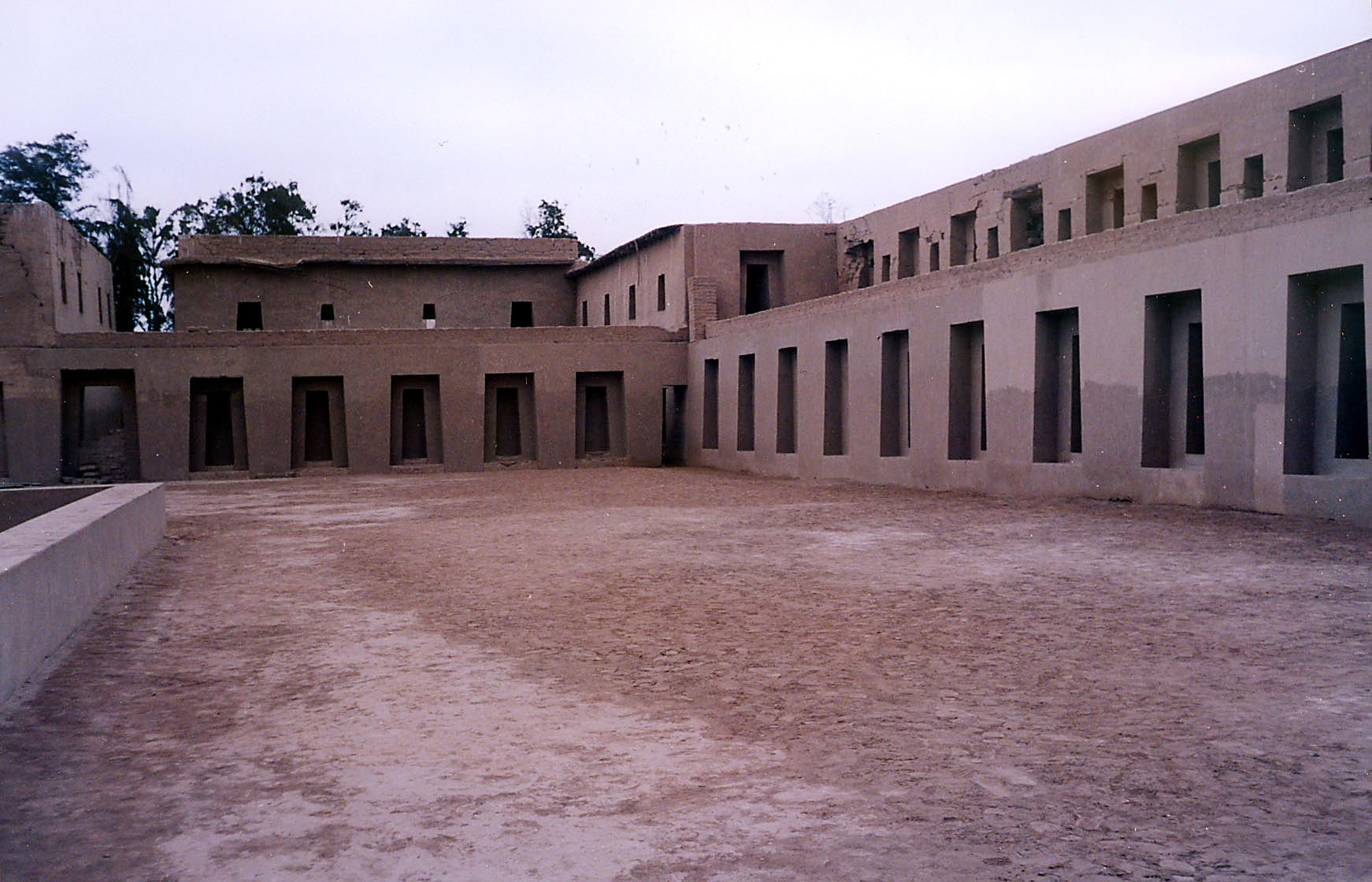|
Manuel Scorza
Manuel Scorza (September 9, 1928November 27, 1983) was an important Peruvian novelist, poet, and political activist, exiled under the regime of Manuel Odría. He was born in Lima. Life and career Scorza was a member of a student group affiliated with the American Popular Revolutionary Alliance (APRA) called The Poets of the People (). He is best known for the series of five novels, known collectively as "The Silent War," that began with ''Redoble por Rancas'' (1970). All five have been translated into more than forty languages, including English. He died when his plane, Avianca Flight 011, crashed on approach to Madrid's Barajas Airport after striking a series of hilltops. The crash killed 181 passengers, including Mexican novelist and playwright Jorge Ibargüengoitia, Uruguayan writer, academic, and literary critic Ángel Rama, and Argentinian art critic Marta Traba. Publications * ''Las Imprecaciones'' (1955) * ''Los adioses'' (1959) * ''Desengaños del mago'' (1961) * ... [...More Info...] [...Related Items...] OR: [Wikipedia] [Google] [Baidu] |
Lima
Lima ( ; ), founded in 1535 as the Ciudad de los Reyes (, Spanish for "City of Biblical Magi, Kings"), is the capital and largest city of Peru. It is located in the valleys of the Chillón River, Chillón, Rímac River, Rímac and Lurín Rivers, in the desert zone of the central coastal part of the country, overlooking the Pacific Ocean. The city is considered the political, cultural, financial and commercial center of Peru. Due to its geostrategic importance, the Globalization and World Cities Research Network has categorized it as a "beta" tier city. Jurisdictionally, the metropolis extends mainly within the province of Lima and in a smaller portion, to the west, within the Constitutional Province of Callao, where the seaport and the Jorge Chávez Airport are located. Both provinces have regional autonomy since 2002. The 2023 census projection indicates that the city of Lima has an estimated population of 10,092,000 inhabitants, making it the List of cities in the Americas b ... [...More Info...] [...Related Items...] OR: [Wikipedia] [Google] [Baidu] |
Guillermo Carnero Hoke
Guillermo Carnero Hoke (June 17, 1917 – March 31, 1985) was a Peruvian writer and political revolutionary, and an activist for the Indigenous peoples in Peru. Early life Carnero Hocke was born in Piura, Peru, on June 17, 1917, to a Peruvian father and an Irish mother. He grew up in Talara, where he joined the American Popular Revolutionary Alliance (APRA) in 1931 at the age of 14. In 1933 he travelled to Lima and joined the Communist Youth. He remained a communist until 1939, when he re-joined APRA. Early activism and first exile From 1944–1947, he was a member of a student group affiliated with APRA called The Poets of the People (). Other members included his brother-in-law Gustavo Valcárcel, Eduardo Jibaja, Julio Garrido Malaver, Mario Florian, Felipe Arias-Larreta, Abraham Arias-Larreta, Luis Carnero Checa, Antenor Samaniego, Ricardo Tello Neira, Juan Gonzalo Rose, Manuel Scorza, Alberto Valencia and Felipe Neira. During this time, he published two poetry ... [...More Info...] [...Related Items...] OR: [Wikipedia] [Google] [Baidu] |
Peruvian Novelists
Peruvians (''/peruanas'') are the citizens of Peru. What is now Peru has been inhabited for several millennia by cultures such as the Caral before the Spanish conquest in the 16th century. Peruvian population decreased from an estimated 5–9 million in the 1520s to around 600,000 in 1620 mainly because of infectious diseases carried by the Spanish. Spaniards and Africans arrived in large numbers in 1532 under colonial rule, mixing widely with each other and with Native Peruvians. During the Republic, there has been a gradual immigration of European people (especially from Spain and Italy, and to a lesser extent from Germany, France, Croatia, and the British Isles). Chinese and Japanese arrived in large numbers at the end of the 19th century. With 31.2 million inhabitants according to the 2017 Census. Peru is the fourth most populous country in South America. Its demographic growth rate declined from 2.6% to 1.6% between 1950 and 2000, and its population is expected to reach a ... [...More Info...] [...Related Items...] OR: [Wikipedia] [Google] [Baidu] |
National University Of San Marcos Alumni
National may refer to: Common uses * Nation or country ** Nationality – a ''national'' is a person who is subject to a nation, regardless of whether the person has full rights as a citizen Places in the United States * National, Maryland, census-designated place * National, Nevada, ghost town * National, Utah, ghost town * National, West Virginia, unincorporated community Commerce * National (brand), a brand name of electronic goods from Panasonic * National Benzole (or simply known as National), former petrol station chain in the UK, merged with BP * National Book Store, a bookstore and office supplies chain in the Philippines * National Car Rental, an American rental car company * National Energy Systems, a former name of Eco Marine Power * National Entertainment Commission, a former name of the Media Rating Council * National Motor Vehicle Company, Indianapolis, Indiana, USA 1900–1924 * National Radio Company, Malden, Massachusetts, USA 1914–1991 * National Supermarke ... [...More Info...] [...Related Items...] OR: [Wikipedia] [Google] [Baidu] |
Peruvian Male Novelists
Peruvians (''/peruanas'') are the citizens of Peru. What is now Peru has been inhabited for several millennia by cultures such as the Caral before the Spanish conquest in the 16th century. Peruvian population decreased from an estimated 5–9 million in the 1520s to around 600,000 in 1620 mainly because of infectious diseases carried by the Spanish. Spaniards and Africans arrived in large numbers in 1532 under colonial rule, mixing widely with each other and with Native Peruvians. During the Republic, there has been a gradual immigration of European people (especially from Spain and Italy, and to a lesser extent from Germany, France, Croatia, and the British Isles). Chinese and Japanese arrived in large numbers at the end of the 19th century. With 31.2 million inhabitants according to the 2017 Census. Peru is the fourth most populous country in South America. Its demographic growth rate declined from 2.6% to 1.6% between 1950 and 2000, and its population is expected to reach a ... [...More Info...] [...Related Items...] OR: [Wikipedia] [Google] [Baidu] |
Avianca Flight 011 Victims
Avianca S.A. (acronym in Spanish for ''Aerovias de Colombia S.A.'', "Airways of Colombia", and stylized as avianca since October 2023) is the largest airline in Colombia. It has been the flag carrier of Colombia since December 5, 1919, when it was initially registered under the name SCADTA. It is headquartered in Colombia, with its registered office in Barranquilla and its global headquarters in Bogotá and main hub at El Dorado International Airport. Avianca is the flagship of a group of airlines of the Americas, which operates as one airline using a codesharing system. Avianca is the largest airline in Colombia and second largest in South America, after LATAM of Chile. Avianca and its subsidiaries have the most extensive network of destinations in the Americas. Before the merger with TACA in 2010, it was wholly owned by Synergy Group, a South American holding company established by Germán Efromovich and specializing in air transport. It is listed on the Colombia Stock Ex ... [...More Info...] [...Related Items...] OR: [Wikipedia] [Google] [Baidu] |
1983 Deaths
1983 saw both the official beginning of the Internet and the first mobile cellular telephone call. Events January * January 1 – The migration of the ARPANET to Internet protocol suite, TCP/IP is officially completed (this is considered to be the beginning of the true Internet). * January 6 – Pope John Paul II appoints a bishop over the Czechoslovak exile community, which the ''Rudé právo'' newspaper calls a "provocation." This begins a year-long disagreement between the Czechoslovak Socialist Republic and the Vatican City, Vatican, leading to the eventual restoration of diplomatic relations between the two states. * January 14 – The head of Bangladesh's military dictatorship, Hussain Muhammad Ershad, announces his intentions to "turn Bangladesh into an Islamic state." * January 18 – United States Secretary of the Interior, U.S. Secretary of the Interior James G. Watt makes controversial remarks blaming poor living conditions on Indian reservation, Native American re ... [...More Info...] [...Related Items...] OR: [Wikipedia] [Google] [Baidu] |
1928 Births
Events January * January – British bacteriologist Frederick Griffith reports the results of Griffith's experiment, indirectly demonstrating that DNA is the genetic material. * January 1 – Eastern Bloc emigration and defection: Boris Bazhanov, Joseph Stalin's personal secretary, crosses the border to Iran to defect from the Soviet Union. * January 17 – The OGPU arrests Leon Trotsky in Moscow; he assumes a status of passive resistance and is exiled with his family. * January 26 – The volcanic island Anak Krakatau appears. February * February – The Ford River Rouge Complex at Dearborn, Michigan, an automobile plant begun in 1917, is completed as the world's largest integrated factory. * February 8 – Scottish-born inventor John Logie Baird broadcasts a transatlantic television signal from London to Hartsdale, New York. * February 11 – February 19, 19 – The 1928 Winter Olympics are held in St. Moritz, Switzerland, the first as a separate event. Sonja Henie of ... [...More Info...] [...Related Items...] OR: [Wikipedia] [Google] [Baidu] |
Latin American Studies Association
The Latin American Studies Association (LASA) is the largest association for scholars of Latin American studies. Founded in 1966, it has over 12,000 members, 45 percent of whom reside outside the United States (36 percent in Latin America and the Caribbean), LASA brings together experts on Latin America from all disciplines and diverse occupational endeavors, across the globe.LASAAbout LASA/ref> History LASA was founded in 1966 following a meeting sponsored by the Joint Committee on Latin American Studies (composed of the Social Science Research Council (SSRC) and the American Council of Learned Societies (ACLS), held at the Hispanic Foundation (now the Hispanic Division) of the Library of Congress The Library of Congress (LOC) is a research library in Washington, D.C., serving as the library and research service for the United States Congress and the ''de facto'' national library of the United States. It also administers Copyright law o ..., May 7, 1966. LASA's constitutio ... [...More Info...] [...Related Items...] OR: [Wikipedia] [Google] [Baidu] |





